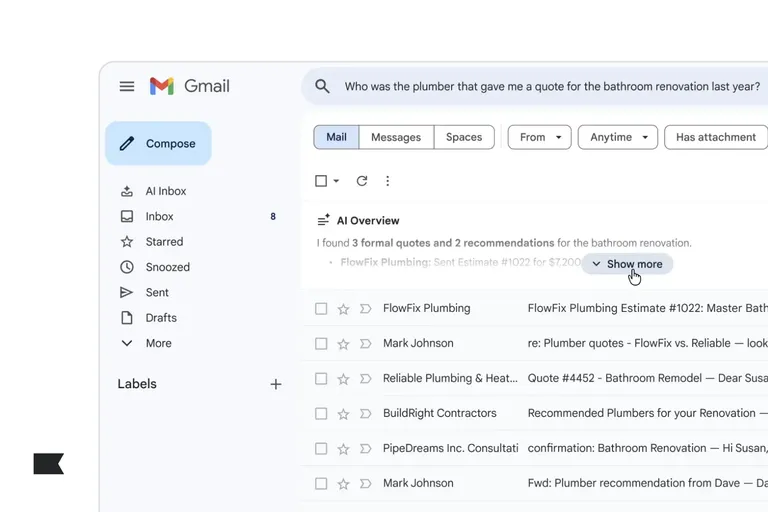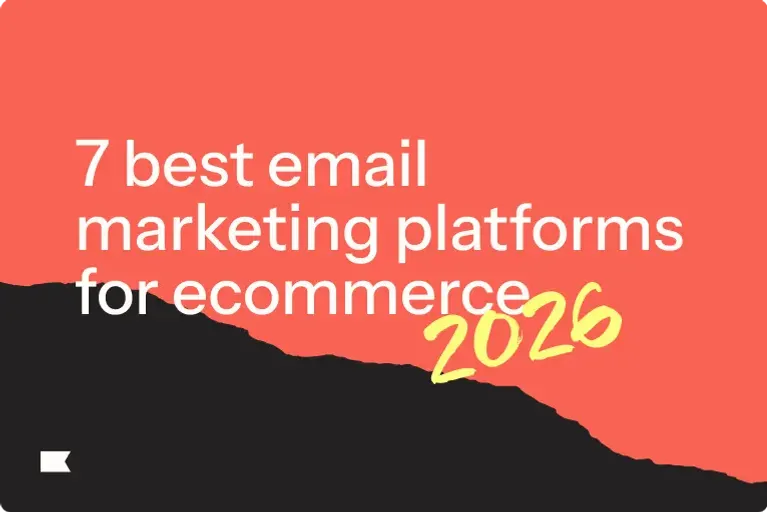When sending professional email marketing campaigns, it’s important that the email and sender information is trustworthy.
Why? Let’s consider an example.
Imagine you’re thirsty on a hot summer day, and you walk into your local convenience store for a bottle of water. The store is trustworthy—you know the clerk, and they direct you to the back drink cooler stocked with two options.
- Option 1 appears to be a sealed bottle of water that costs $1. But the label on it is mostly blank, with just the word “Water” written on it by hand with a marker.
- Option 2 is a brand-name bottle with an official label and seal, priced at $1.05.
You ask the store owner what the deal is with the oddly labeled bottles of water. They assure you it’s the same brand of water from the same bottling company—the owner just gets them cheap because they don’t come pre-labeled.
Which bottle of water are you likely to buy?
I don’t know about you, but I would be willing to spend the extra 5 cents on the bottle of water I know for sure came from a safe, trustworthy source, rather than just take the clerk’s word for it.
This is effectively what dedicated click tracking with SSL offers your brand.
Dedicated click tracking is a business best practice for anyone sending marketing emails because it allows your business to brand all the URLs in your campaigns with your own domain name, instead of a default option. When a subscriber hovers over a link in your email campaigns, it will show a branded domain that aligns with your website’s domain name.
Let’s discuss a few reasons this practice is so important—and 5 best practices for getting it right.
Top benefits of dedicated click tracking
Here are a few of the key benefits of dedicated click tracking:
- It provides a more polished, professional look for all URLs within your email campaigns using a subdomain of your main (or root) domain name.
- It increases trust with inbox providers and email filtering services because the tracking URLs can be associated with your email domain’s good reputation.
- It can help strengthen trust in your email campaign content with major email filtering services like Proofpoint, Mimecast, and more.
- Aligned tracking domains have a lower chance of generating bot clicks, a.k.a. automated clicks.
- Dedicated click tracking domains can have their own SSL certificate which is separate from the certificate for the root domain. With Klaviyo, this is required to secure the subdomain.
What is SSL, and why is it important for this process?
Many websites require a secure connection via settings set by their HTTP Strict Transport Security (HSTS), which is the industry standard to protect visitors of a website by ensuring their browser always connects to that site over a secure connection.
You may notice, when connecting to most (if not all) of your favorite websites, that the address tends to start with “HTTPS”. This is the main indicator that you’re connected to that site via an end-to-end encrypted connection.
A website’s HSTS declares to a user’s browser—Chrome, Edge, Safari, etc.—that it requires a secure connection. Occasionally, a website’s HSTS may also require secure connections for subdomains, which includes the tracking domain for your Klaviyo account.
Secure connections are important in high-security environments. They help strengthen trust with inbox providers and anti-spam filters—and SSL certificates are required to establish a secure connection.
Secure connections are important in high-security environments. They help strengthen trust with inbox providers and anti-spam filters—and SSL certificates are required to establish a secure connection.
You can obtain an SSL certificate via your hosting provider or Content Delivery Network (CDN)—a service that helps speed up the connection from a user to your website. A CDN accomplishes this by storing data for the site in multiple locations across the globe so it’s closer to the end user and takes less time to load. Using a CDN to host SSL certificates is typically considered a best practice.
5 dedicated click tracking and SSL email best practices
Here are a few best practices to keep in mind when setting up your dedicated click tracking with SSL:
1. Use a subdomain for click tracking
When setting up a dedicated click tracking domain, you’ll first need to choose a subdomain of your website’s root domain name.
A subdomain name is additional information at the beginning of a website’s domain name that allows your website to easily identify portions of the site that have different uses.
Some subdomains may be used as a website’s branded sending domain, some may be used for click tracking, and some may be used for transactions, or even different types of content, like a blog.
Using a subdomain for click tracking allows Klaviyo to provide you with the necessary records to point to our systems specifically for the purpose of tracking clicks within your email campaigns, which can then be directly associated with a specific subscriber.
By default, Klaviyo recommends using “trk.yourdomain.com” as the format for dedicated click tracking. But you can choose any subdomain you like, with a few restrictions (more on that later).
2. Choose a subdomain name that aligns with your root domain
Your subdomain, while customizable, should still align with the root domain you send from. For example, if your sender email address is “bob@bobsburgers”, the tracking domain should be something like “trk.bobsburgers.com”. This helps reinforce your brand with subscribers who click on your email links.
3. Avoid certain types of subdomains
When choosing your subdomain, do not use:
- Common subdomains that may be used for other purposes, like “m.mydomain.com”. In this example, the “m” often stands for “mobile”, and in some cases redirects users to a mobile version of your website. Using this for a tracking domain could cause a conflict if your website is set up with this redirect already.
- Regional subdomains, like “eu.mydomain.com” or uk.mydomain.com”. This is another example of a domain that may redirect a user to a different version of the website—in this case, regional versions for the UK and EU.
4. Make sure your subdomain is different from your branded sending domain
Your subdomain cannot be the same as your branded sending domain. For example, if your branded sending domain is “send.bobsburgers.com”, you cannot use that as your dedicated click tracking domain.
Your branded sending domain must ONLY be used for that purpose. Using it for anything else could potentially cause problems when Klaviyo attempts to deliver your emails.
5. Do not use this subdomain anywhere outside of Klaviyo
Much like a branded sending domain, this subdomain should not be used anywhere outside of Klaviyo. Doing so could potentially cause configuration and reputation issues that could prevent the URLs associated with your dedicated click tracking domain from functioning properly.
Dedicated click tracking: an important part of the deliverability ecosystem
Using dedicated click tracking with SSL is a great way to make your marketing emails look more professional and more secure—not only to inbox providers, but to your end customers, too.
When you combine dedicated click tracking with SSL with a dedicated IP, branded sending domain, and sender reputation best practices, you’re working toward ensuring the best possible conditions for delivering all of your emails to your subscribers’ inboxes.




